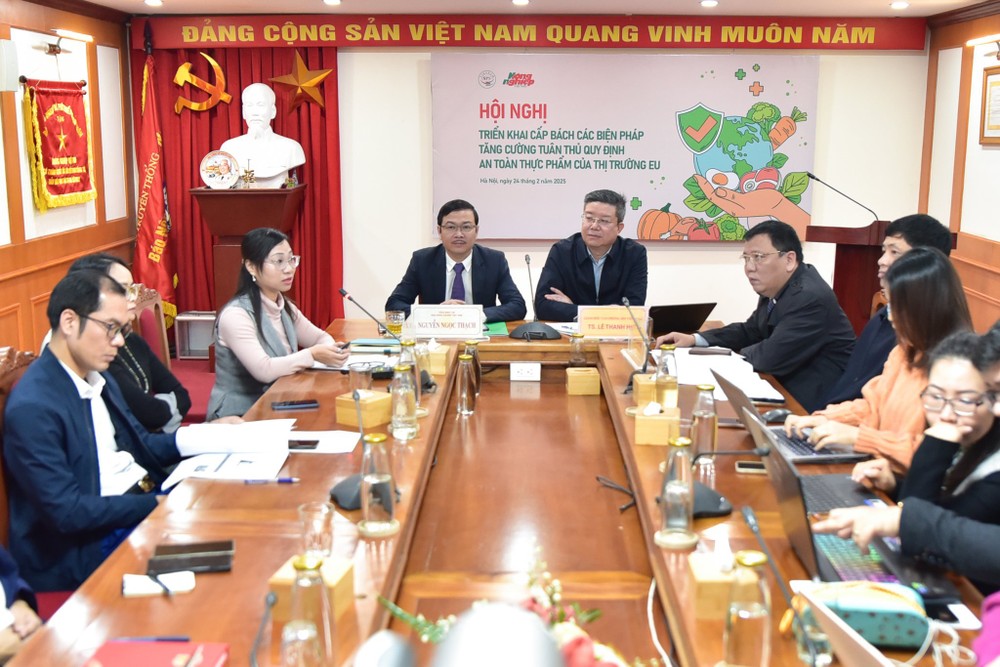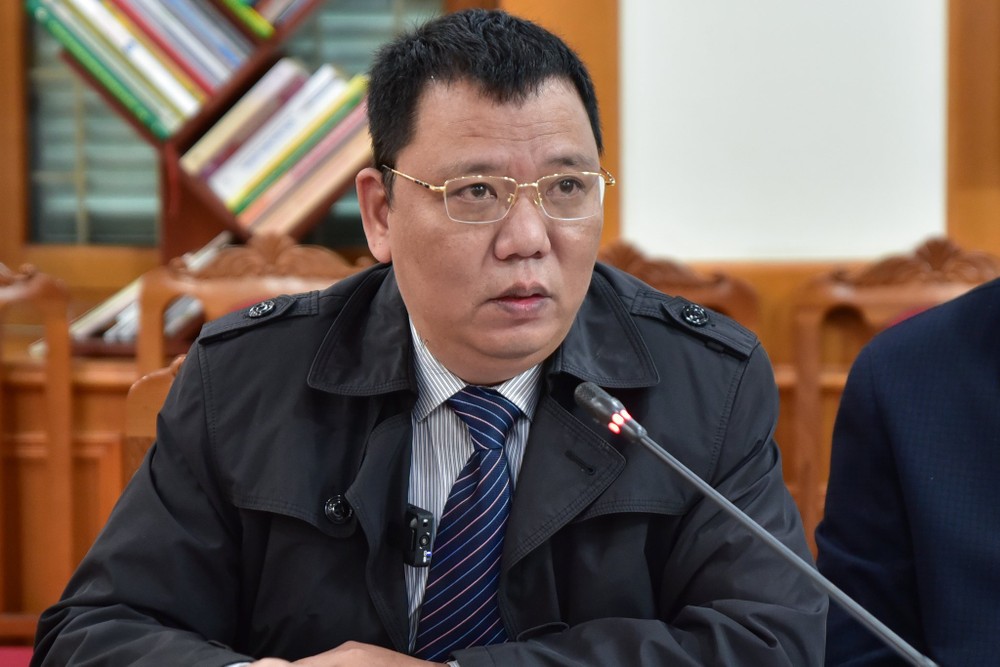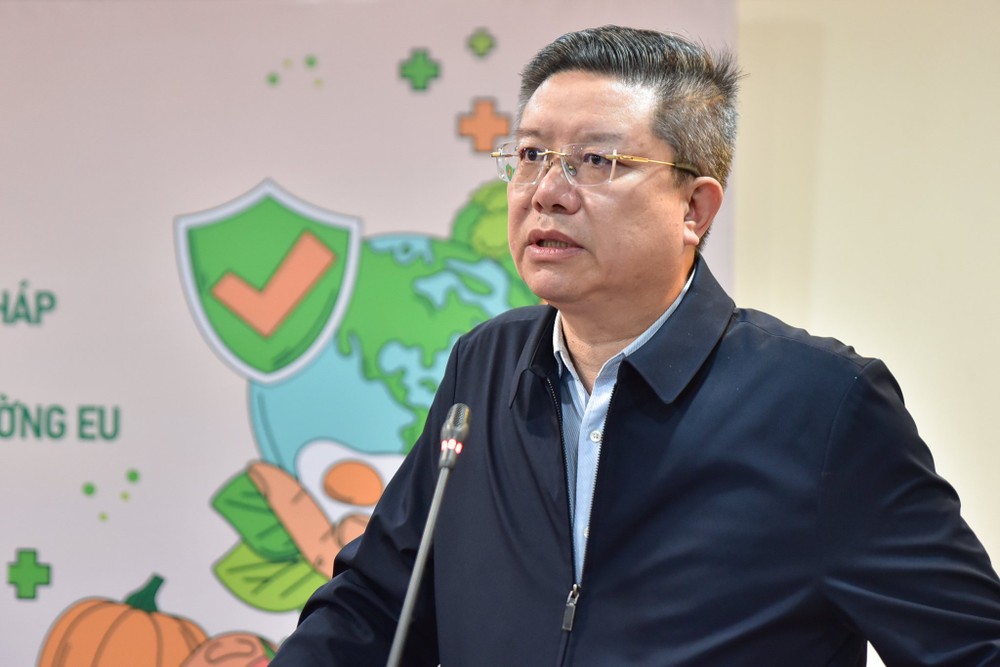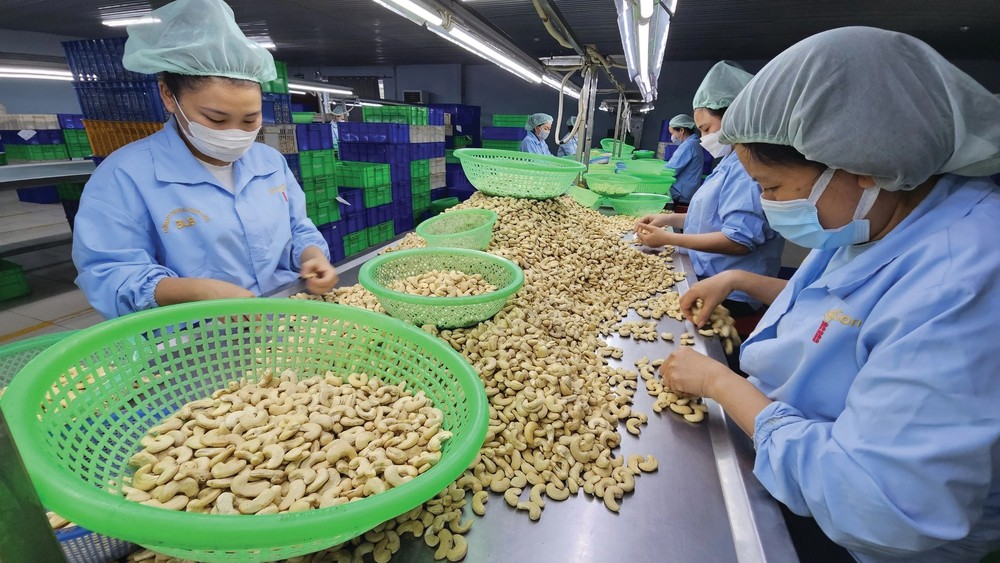
The Vietnam SPS Office held a conference to discuss measures to strengthen compliance with EU food safety regulations for agricultural and seafood products, on the morning of February 24, in Hanoi.
Number of warnings doubled
Vietnamese agricultural exports to the EU have been growing, fueled by strong demand for sustainable consumer goods. Key exports such as coffee, cashew nuts, black pepper, tropical fruits, and seafood have established a solid presence in the market of over 450 million people. Vietnam benefits not only from abundant supply but also from unique agricultural products unavailable in Europe, such as dragon fruit, mango, passion fruit, lychee, and longan.
However, data from the Vietnam SPS Office shows that in 2024, Vietnam received 114 warnings from the EU—double the number recorded in 2023. A major reason is that many businesses have not fully updated themselves on new regulations.
The EU imposes no minimum quantity limit on non-compliant shipments, meaning even small volumes or hand-carried goods can be inspected. If a product fails to meet standards, the EU issues immediate warnings and may impose import bans on categories with repeated or severe violations.
Vietnam is also facing growing challenges related to "novel foods." While there were no EU warnings in 2023, one case was recorded in 2024, and in just the first two months of 2025, the number has surged to four—accounting for 50 percent of all EU warnings on novel foods worldwide.
According to Mr. Ngo Xuan Nam, Deputy Director of the Vietnam SPS Office, warnings related to chemical residues are increasing. In 2024, pesticide and veterinary drug residues accounted for 53.5 percent of all warnings, antibiotic residues in seafood made up 50 percent, and pesticide residues in plant-based products reached 68.4 percent.

Among localities, Ho Chi Minh City recorded the highest number of warnings (42), followed by Hanoi (10), Tien Giang (9), and Khanh Hoa (7). These provinces have yet to submit their implementation plans for the SPS Project, as required by the Prime Minister’s directive.
General Department of Vietnam Customs data shows that while EU warnings have risen nearly 300 percent over the past four years, the value of Vietnamese exports to the EU has grown by less than 50 percent. Deputy Director Ngo Xuan Nam emphasized that the assumption that "higher exports lead to more warnings" is not entirely accurate. Large enterprises, particularly those with foreign direct investment (FDI), have specialized technical teams that quickly adapt to new EU standards. In contrast, small and medium-sized enterprises are more prone to violations due to insufficient information or delays in updating regulatory requirements.
Enhancing compliance and proactive adaptation
Amid growing concerns over EU warnings on Vietnamese food exports, the Government Office issued a directive on February 20, relaying Deputy Prime Minister Tran Hong Ha’s call for immediate corrective measures.
The Ministry of Agriculture and Rural Development and the Ministry of Industry and Trade have been tasked with strengthening inspections and monitoring raw material sources, processing facilities, and packaging operations to ensure strict compliance with SPS regulations, thereby protecting the reputation of Vietnamese agricultural products.
Mr. Le Thanh Hoa, Deputy Director of the Department of Quality, Processing, and Market Development, emphasized that updating and disseminating new EU regulations is a top priority. The SPS Office is also developing a national SPS information portal to provide businesses, cooperatives, and local authorities with timely updates, helping them navigate regulatory changes and mitigate export risks.

A representative from Vietnam’s Trade Office in the EU warned that although the EU has temporarily postponed the Sustainable Use Regulation (SUR) on pesticides, residue standards remain stringent. The EU is expected to intensify inspections and enforce stricter transparency requirements for product origins.

With food safety regulations tightening, Deputy Director Ngo Xuan Nam urged businesses to take a proactive approach by staying informed on EU standards, investing in quality control systems, and developing standardized raw material zones. Without strategic preparation, Vietnamese agricultural products risk losing market share to competitors.
























